7 Popular Fast-Food Items With Sketchiest Ingredients
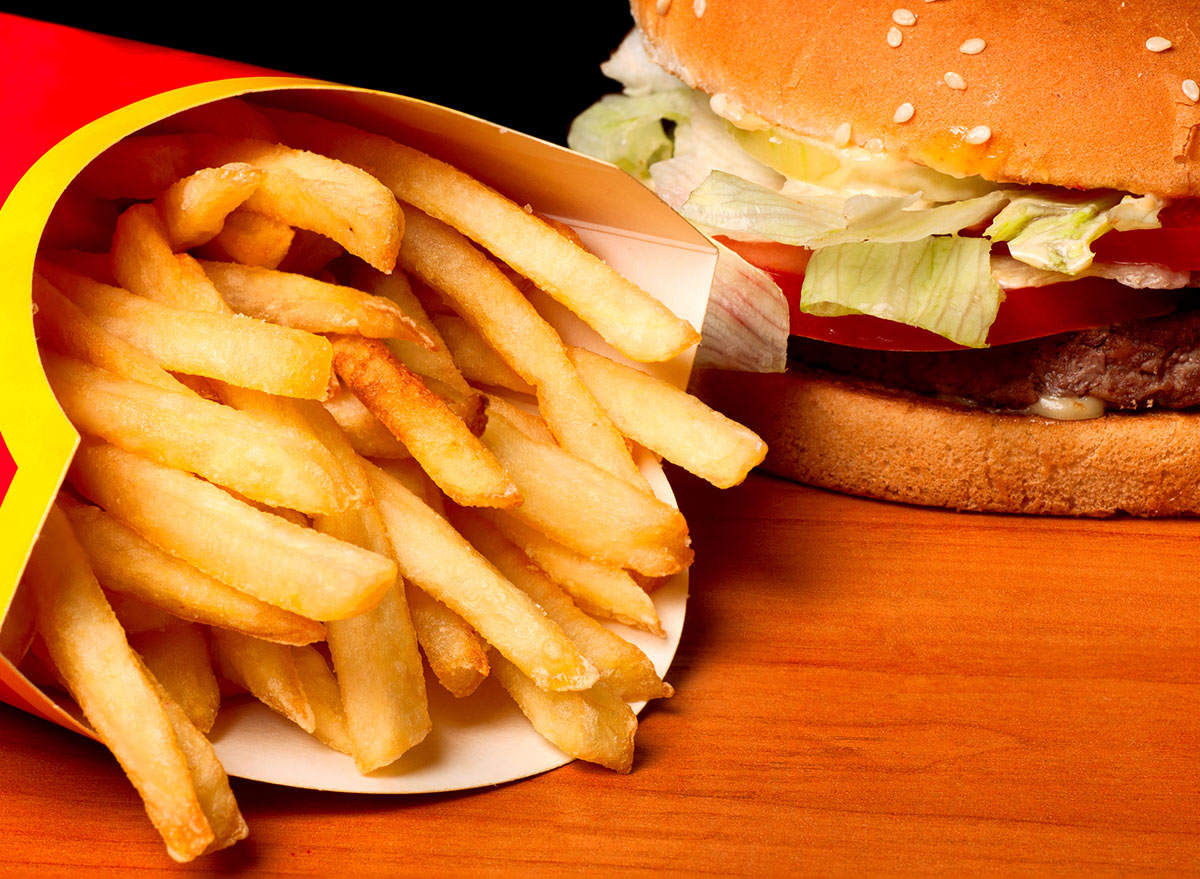
If you're a regular at McDonald's, Burger King, or Wendy's, you've probably wondered, at one point or another, what exactly goes into your food. For example: are McDonald's burgers really made of "pink slime"? It's a fair question! (Fair enough that Mcdonald's has an official response to it on its FAQs page.)
Pink slime aside, many fast-food items contain unusual (and in some cases, harmful) ingredients and additives that you might not know about. A case in point: last year when Burger King announced a "ban" on 120 artificial ingredients, the real news for most people (as Men's Health correctly points out) was that the chain had been, up until 2021, using those 120 artificial ingredients.
Whether you're a fast-food skeptic or a die-hard McDonald's fan, you will want to catch up on these sketchy ingredients found in many popular fast food items.
And for more, check out 8 Worst Fast-Food Burgers to Stay Away From Right Now.
McDonald's Apple Pie
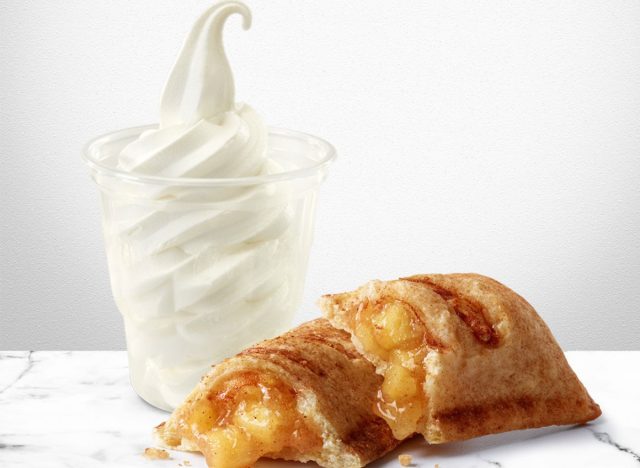
In the words of Dave Chappelle: American apple pie isn't made of apples—it's made of whatever you can get your hands on. McDonald's, for example, uses an amino acid called L-cysteine in its Baked Hot Apple Pie to increase the pliability of the dough, and a common source of L-cysteine, according to The Vegetarian Resource Group, is duck feathers. Prior to the use of ducks feathers, L-cysteine was also sourced from human hair.
Wendy's Fries
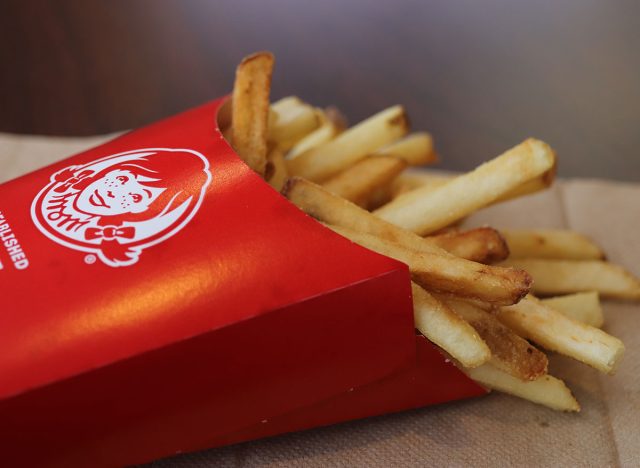
Wendy's, like many other fast-food chains (McDonald's and KFC included), uses a form of silicone, dimethylpolysiloxane, as an "anti-foaming" agent in its fryer oil, and fried items like Natural Cut Fries (or McDonald's Fish Filet) contain trace amounts of the chemical. Dimethylpolysiloxane is also found in products like Silly Putty and cosmetics. Yikes. If it's any consolation, though, the World Health Organization has not found any evidence that dimethylpolysiloxane is harmful to humans.
Wendy's Chili
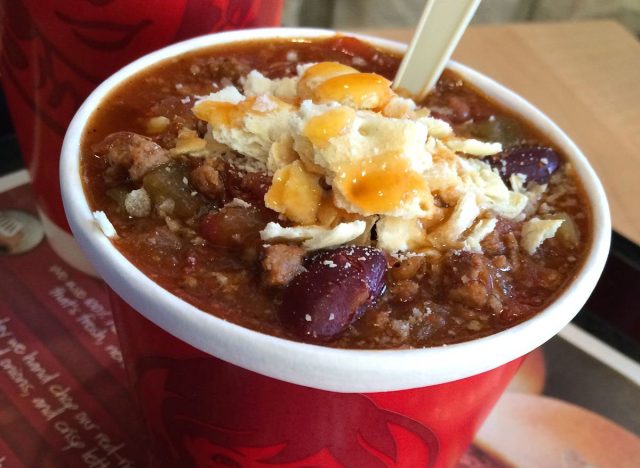
The recipe for Wendy's famous chili has been a source of speculation for years. Then a recent TikTok video resurrected the debate when it claimed that dry, left-over burger patties were the chili's secret ingredient. After being viewed over 7 million times, the clip has been removed from the poster's account, but you can still view it on Youtube.
In fact, Wendy's practice of "recycling" old patties has been public knowledge since at least 1991, when the chain's founder Dave Thomas discussed the money-saving technique in his biography, Dave's Way.
Taco Bell's Burritos
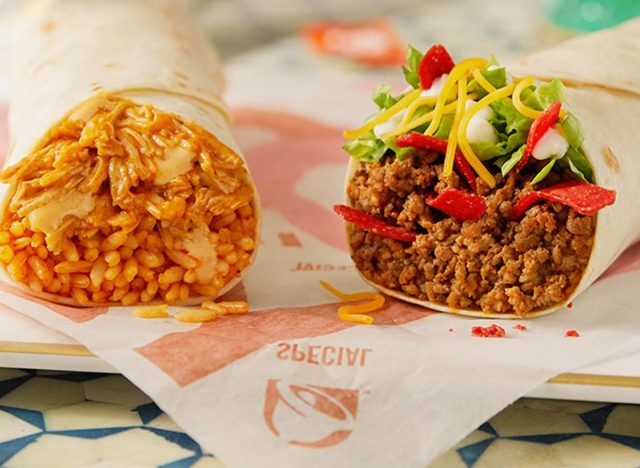
First brought to public attention in 2014, wood pulp—or cellulose—is a thickening and stabilizing agent used in many fast-food menu items. In fact, you can find it in literally every burrito sold at Taco Bell.
Before you delete your Taco Bell app, though, take note: microcrystalline cellulose, like some of the other chemicals mentioned in this article, is still on the FDA's "Generally Recognized as Safe" list. And as Slate points out, wood pulp is "pure fiber" and is not, in and of itself, harmful to humans.
Chick-fil-A Milkshakes
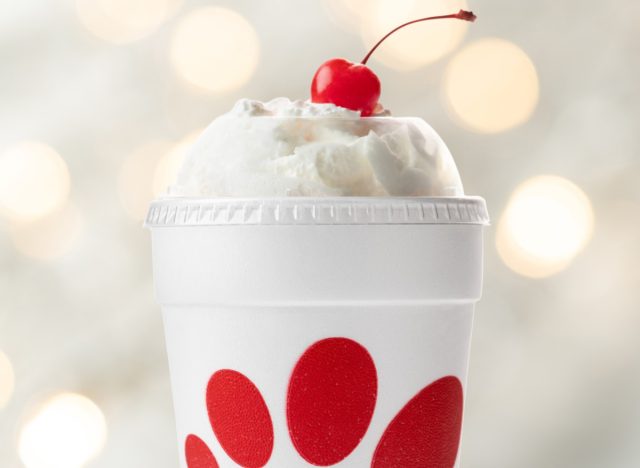
Chick-fil-A doesn't literally use seaweed in its milkshakes. But they do use carrageenan, a thickening and gelling agent derived from Irish Moss, a red seaweed. (And, for the record, so do McDonald's and Wendy's.) The use of carrageenan in fast food has been public knowledge for a while now, and the additive is still on the FDA's "Generally Recognized as Safe" list.
Most fast-food packaging
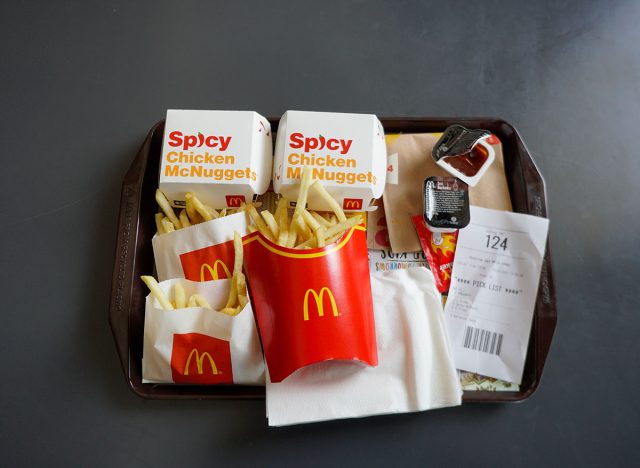
In some cases, it's not the food itself that you should be worried about, but the packaging. As previously covered by Eat This, Not That!, packaging at many fast-food chains contains harmful quantities of PFAS—fluorine-based chemicals that have been correlated with cancer, fertility issues, and weakened immune systems. A 2020 study by advocacy groups found that PFAS-treated packaging was used (in varying degrees) by all three of America's largest burger chains: McDonald's, Burger King, and Wendy's.
Fast-food's number one secret ingredient
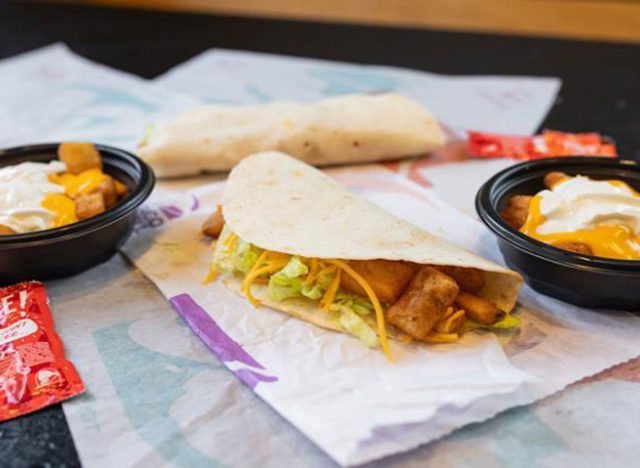
Phthalates are a group of chemicals used in manufacturing to increase the durability of certain plastics. Far from harmless, phthalates have been correlated with a host of illnesses in humans, including reproductive disorders, asthma, and cognitive delays. They are found in common consumer goods like vinyl flooring and packaging. They're also likely to be found in your fast-food order.
A study published just four months ago in the Journal of Exposure Science and Environmental Epidemiology found high quantities of phthalates in menu items at leading chains, including McDonald's, Burger King, Pizza Hut, and Taco Bell.









